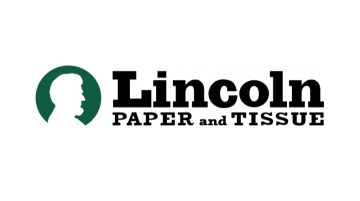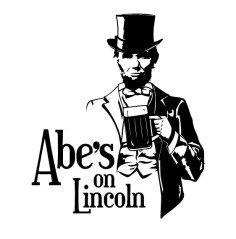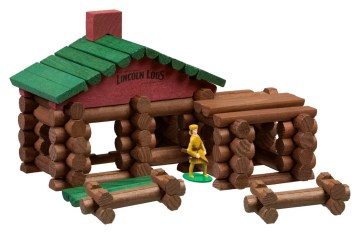I'm Abraham Lincoln, and I'm here to sell you a new car.
For almost a century, Lincoln Motor Company paid homage to our 16th president in name only – hoping the mere mention of the man who saved the Union and abolished slavery would somehow cast an aura of prestige and integrity over their product and resonate with potential car buyers.
In December, however, the automaker began using Lincoln’s likeness in its advertising for the first time. The motor company says the move was not tied to the release of Steven Spielberg’s epic film Lincoln — even though parts of the ad for the new MKZ, in which the president’s likeness emerges dramatically from layers of fog, look as if they could’ve been pulled from the cutting room floor.
Instead, the automaker told The New York Times, it’s trying to connect its vehicles to Lincoln’s “fortitude and elegant thinking” — and that the timing with the film’s release was just good luck.
Coincidence or not, the Lincoln Motor Company has latched onto something that is slowly pervading modern-day America: Nearly 150 years after his death, Abraham Lincoln is at the height of his career as a corporate pitchman and icon of popular culture.
(MORE: Oscar Robbery: 10 Controversial Best-Picture Races)
Within the last few years Lincoln has appeared in Geico ads, prescription drug commercials, and Diet Mountain Dew spots. He’s been the subject of the mashup novel (and movie) Abraham Lincoln: Vampire Hunter and the best-selling Bill O’Reilly book Killing Lincoln. (The TV version of O’Reilly’s book brought the National Geographic channel record ratings this Presidents’ Day weekend, according to The Hollywood Reporter.) His likeness appeared prominently in the movie Night at the Museum: Battle of the Smithsonian and was recently parodied by Louis C.K. on “Saturday Night Live.” Spielberg’s film, which some think will win Best Picture at the Oscars this Sunday, could prove to be the climactic culmination of our recent burst of Lincoln love.
“Lincoln is trending,” says Mark Pohlad, a Lincoln expert and art historian at DePaul University. “He’s more popular now than he’s ever been.”
If one had to put a date on the origins of Lincoln fever, 2009 is as good a year as any. That was the bicentenary of Lincoln’s birth and the year of the first inauguration of a lanky lawyer from Illinois named Barack Obama, who not only possesses a background and personal attributes that are often compared with Lincoln’s, but arguably realized Lincoln’s vision of racial equality when elected president.
Given Lincoln’s against-the-odds rise from obscurity and the dramatic and momentous events of his presidency, it’s not surprising that countless books, TV shows, and movies appear each year. More interesting, perhaps, is the apparent appeal of this 19th-century historical figure as a pitchman for companies trying to reach consumers in the 21st.
“Lincoln is every bit as recognizable today as the Golden Arches or Mickey Mouse,” says Jackie Hogan, sociology professor at Bradley University and author of Lincoln, Inc.: Selling the Sixteenth President in Contemporary America. “He is an instantly recognizable icon, which is what businesses want. But he’s even more useful than the Golden Arches or Mickey Mouse because of what he stands for. He has come over time to stand for all-American values: courage, integrity, common sense. But I also think that in the last five years or so, Lincoln’s image has had some added appeal because of the American Dream he exemplifies.”
Since the recession, Hogan argues, we’re even more likely to hold up figures like Lincoln — a rail-splitter who made it all the way to the Oval Office — as the embodiment of American pluck.
(MORE: Pay Less for Sporting Event Tickets — After You’ve Already Bought Them)
But Lincoln is also malleable enough that almost anyone can use him to advance his or her own interests. “We can look at Lincoln and make him into whatever we want him to be,” Hogan says, citing the civil rights movement and the KKK, both of which have argued that if Lincoln were alive today, he’d be on their side. While we know much about the president’s day-to-day activities, much less is known about the inner workings of Lincoln’s mind. That makes it easy for us to fill in the gaps as we see fit.
Americans started making money off the president almost immediately after his death in 1865. An active trade of “Lincolniana” has been well documented: Locks of hair, ribbons from his funeral procession, and anything with his blood on it starting selling for large sums of money, in some cases the equivalent of a whole year’s salary in the late 19th century.
Corporate interests started glomming onto Lincoln’s reputation in the early years of the 20th century, around the centenary of his birth. The first to use Lincoln’s name and likeness — and the only company that ever got explicit permission — was the Lincoln Financial Group, in 1905. Lincoln’s sole surviving son, Robert Todd, allowed the company to use his father’s image. Today, no Lincoln heirs are alive, so if you feel like starting up the Lincoln Toilet Paper Corporation, well, you can.
Over the years, Lincoln’s image or name has shown up on pretty much everything you could imagine, including band-aids, cigars, syrup, cologne, tobacco, oranges, key chains, coffee mugs, and T-shirts. Lincoln Logs have been a childhood staple for close to a century, and both Lincoln Motor Company and Lincoln Financial Group have successfully used the 16th president’s name to sell cars and life insurance for decades (never mind the fact that Lincoln was an abysmal businessman before his life in politics).
It’d be impossible to calculate how much money has been made off of Lincoln’s name and image over the years. But in a way, his popularity can be quantified. In Lincoln, Inc., Hogan shows a remarkable increase over the past few decades in the number of books published worldwide about the president. Between 2005 and 2010, about 4,500 books were published, compared to 1,000 books between 1980-85.
(MORE: The Most Expensive Weapon Ever Built)
What’s interesting is that Lincoln has few rivals as a corporate pitchman among historical figures. We rarely see George Washington or Thomas Jefferson used to hawk goods. If Bank of America started using Jefferson’s image in marketing, critics would inevitably ask why a financial institution would use a figure who owned slaves. In this sense, Lincoln’s reputation puts him in a class by himself. “He’s just beyond criticism in terms of his compassion, his charity, his good nature,” says Pohlad.
“People evoke great figures like Martin Luther King or J.F.K. in the way that they tend to evoke Lincoln,” adds Hogan. “What they don’t do is sell MLK toilet paper or JFK shot glasses for the most part.”
But historical figures tend to wax and wane in the public consciousness. We may soon find someone new to lionize and to sell us products. As it turns out, in fact, there are JFK shot glasses. Could a new gig as corporate pitchman be far behind?




